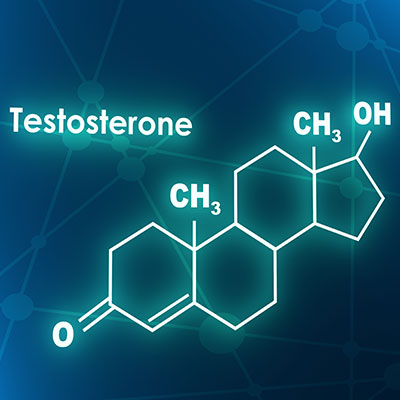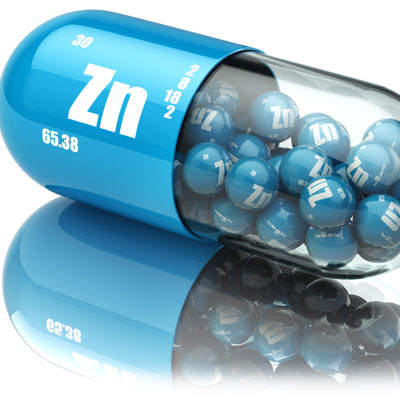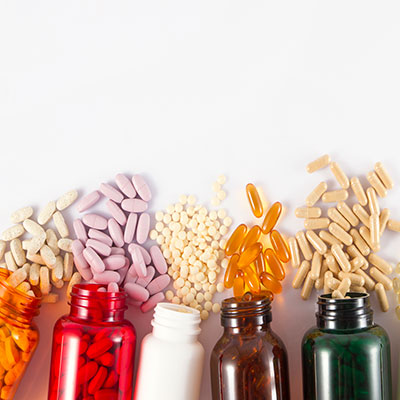The Latest Proven Methods to Increase Testosterone
Contents
- Natural Ways to Increase Testosterone
- What are the Best Sports Activities and Exercises to Boost Testosterone?
- Are There Foods To Eat That Increase Testosterone?
- Are There Foods to Avoid if You Want to Maintain Good Testosterone Levels?
- Are There Any Supplements That Can Increase Testosterone?
- Vitamin D
- What Lifestyle Change Can I Make That Could Boost Testosterone?
- Medical Treatment for Low Testosterone – Testosterone Replacement Therapy
- Are Testosterone Injections the Best Form of Testosterone Replacement?
- What do the Medical Studies Say About Increasing Your Testosterone Level?
Testosterone levels decrease as you age. However, there are many proven ways to increase your testosterone levels, from diet to supplementation to medical interventions.
Natural Ways to Increase Testosterone
Testosterone is a critical hormone for both men and women. Unfortunately, we lose this critical hormone as we age. By the time a man is over 30, the level of testosterone in his blood can decrease by as much as 2% every year. As your testosterone drops, it can have many negative impacts on your quality of life, affecting everything from your energy levels to sexual function and cognitive abilities.
The good news is there are many natural ways to boost your testosterone levels. Natural ways to boost your testosterone level include:
- Making dietary changes
- Doing testosterone boosting specific exercises
- Nutritional supplementation
- Making lifestyle changes
What are the Best Sports Activities and Exercises to Boost Testosterone?
Staying active and getting regular exercise are essential for maintaining good testosterone levels. However, there are certain exercise or sports activities that are better than others for boosting testosterone.
Personal trainers and doctors agree that strength training and resistance training, such as weightlifting, are the best types of exercises to boost testosterone levels. Resistance training and strength training exercises are the best to raise testosterone. High-intensity interval training (HIIT), in particular, has been found to boost testosterone levels. HIIT consists of repeated sessions of high-intensity cardio, followed by various less intense recovery times.
This type of training can be accomplished using bodyweight, resistance bands, free weights, medicine balls, or weight machines. Studies have found that short HIIT sessions can do more to raise testosterone than much longer periods of less intense exercise. For example, one study found that doing only 90 seconds of intense treadmill running interspersed with 90-second recovery periods boosted testosterone levels more significantly than simply running or jogging at a moderate pace for 45 minutes.
In addition to HIIT, some of the other best exercises for increasing your testosterone level are:
- Resistance Training
Resistance training, often referred to as “weight training” as opposed to “weightlifting,” involves making your muscles work against a weight force. Resistance training usually involves machines and resistance bands that use your own body weight. TRX suspension training, used by the US Military, is a form of resistance training particularly good at boosting testosterone.
- Bodyweight Exercises
You can boost your testosterone with “bodyweight exercises” that require no equipment at all. By performing bodyweight squats, push-ups, pull-ups, and sit-ups, you can exercise a range of muscles across your body, growing strength and boosting testosterone. And, the best part is you can start right away, at home, without having to join a gym or purchase any special gear.
- Lifting Weights
Next to HIIT, most personal trainers say that lifting weights is one of the best exercises for raising your testosterone level.
Are There Foods To Eat That Increase Testosterone?

Beyond that, there are some very specific foods you should add to your diet if you are interested in boosting your testosterone levels. Known testosterone boosting foods include:
- Seafood and Fish
Vitamin D is critical for testosterone production, and shellfish are high in vitamin D. Oily fish such as sardines, mackerel, and salmon, are also rich in vitamin D.
- Coconut
Many men, after the age of 40, reduce their consumption of “bad fats” to lose weight and lessen the risk of cardiovascular disease. But low-fat diets can also lead to low testosterone; coconut is a way to add a “good fat” to your diet to boost testosterone production.
- Pumpkin
Pumpkin, and particularly pumpkin seeds, have a lot of zinc. Men with low zinc also tend to be low in testosterone.
- Whey Proteins
A recent study by the University of Connecticut found that men who increased their intake of whey proteins produced less cortisol. Cortisol is a “stress” hormone that interferes with the production of testosterone. Good sources of whey protein include ricotta cheese, which also includes several essential amino acids, kefir, and yogurt.
- Berries
Strawberries, and other dark/red berries, such as raspberries and blackberries, also contain powerful antioxidants that can block or reduce the production of cortisol and other testosterone inhibiting hormones.
- Cruciferous Vegetables
Leafy greens and other cruciferous vegetables such as broccoli contain phytochemicals that block or inhibit the production of estrogen. Estrogen in a man’s body lowers your production of testosterone, so these vegetables have a positive impact on testosterone production. Other veggies in this group include kale, cauliflower, cabbage, Brussels sprouts, and bok choy.
Are There Foods to Avoid if You Want to Maintain Good Testosterone Levels?
Just as there are foods you should add to your diet to try to increase your testosterone levels, there are several testosterone lowering foods to eliminate from your diet.
If you want to boost testosterone, in addition to adding the kinds of foods mentioned above, there are certain “testosterone killing” foods you must avoid. These include:
- Soy products
- Most dairy products (except those that have been enriched with vitamin D)
- Mint
- Bread, pastries, and desserts
- Licorice root
- Vegetable Oil
- Flaxseed.
- Processed Foods
Are There Any Supplements That Can Increase Testosterone?
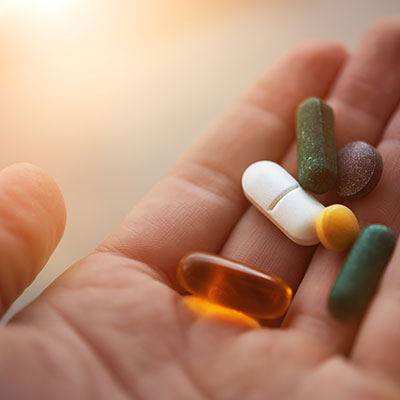
While there have been many claims about supplements that can boost testosterone, there is clinical evidence of only a few nutritional supplements that can actually improve testosterone production. Among the supplements that have been shown to help raise testosterone, the evidence most strongly supports the use of zinc, followed closely by magnesium.
- Zinc
There is a definite connection between the essential nutrient zinc and testosterone levels. Men with zinc deficiency are often found to have low testosterone. The reverse is also true. Men with low testosterone often are also suffering from zinc deficiency. Zinc is definitely one of the best supplements to take with testosterone.
- Magnesium
Much like zinc, low magnesium levels are also associated with low testosterone levels. Studies indicate an increase in magnesium intake can translate into an increase in testosterone production. Magnesium has both a direct and indirect positive impact on testosterone production. The mineral itself is an essential precursor to testosterone production, and also one of magnesium’s primary functions in your body is to help convert vitamin D into its active form. Therefore, magnesium, too, is a recommended supplement to take with testosterone.
Other nutritional supplements that may have the power to enhance testosterone production include:
- D-aspartic acid – This amino acid plays a role in testosterone production and release.
- Dehydroepiandrosterone (DHEA) – DHEA is a hormone that humans naturally make in their adrenal glands. Studies have shown that DHEA supplementation increased testosterone levels in mice with induced low testosterone.
- L-arginine – There is some evidence that L-arginine is another amino acid that men on testosterone therapy could take. L-arginine is a supplement recommended to take with testosterone not because it raises testosterone levels directly but seems to help with some of the symptoms of low testosterone, such as fatigue and erectile dysfunction.
Vitamin D
There is significant clinical evidence to show that of all nutritional supplements to take with testosterone; vitamin D may be the most important.
Vitamin D is known to support testosterone production. Most men do not get enough vitamin D through sunlight. A vitamin D deficiency can influence low testosterone. Men who have been diagnosed with low testosterone and are on testosterone replacement therapy certainly should add vitamin D to their regimen.
Most vitamins, such as vitamin B and C, are nutrients. But, vitamin D is something different. Vitamin D is not a nutrient; it acts more like a hormone. It is responsible for stimulating the production of other critical hormones such as testosterone.
There have been several studies that indicate a link between low levels of vitamin D and low testosterone in men. However, doctors are not really sure why.
Current research seems to suggest that there is something about testosterone production that requires the presence of vitamin D. In this way, vitamin D is what doctors refer to as a “precursor” for testosterone production.
Identifying a relationship between vitamin D and testosterone is a vital medical breakthrough. Doctors know that it is normal for a man’s testosterone level to decrease the older that he gets. There is research to suggest that it may be possible that vitamin D supplementation can help make up age-related testosterone loss.
What Lifestyle Change Can I Make That Could Boost Testosterone?
In Addition to the natural methods mentioned above, there are also lifestyle changes you should consider that can help to increase testosterone or maintain a healthy testosterone level. These include:
- Getting Enough Sleep – Critical hormones such as testosterone and growth hormone are mostly produced during periods of deep sleep. Not getting enough sleep negatively impacts hormone production. Making sleep a priority is vital to maintain testosterone levels. Men should aim to sleep at least 7 to 8 hours each night.
- Reducing stress – Stress is a testosterone killer. High stress raises your levels of the hormone cortisol. Elevations in cortisol can quickly reduce testosterone.
- Avoiding Alcohol – Abuse of alcohol lowers your testosterone.
- Have an Active Sex Life – Men will be happy to know that having sex regularly can increase testosterone production
Medical Treatment for Low Testosterone – Testosterone Replacement Therapy
There are ways to naturally boost your testosterone levels. However, if you have been diagnosed with low testosterone, the only way to treat it medically is with testosterone replacement therapy.
Exercising more, eating the foods as suggested, and making other lifestyle changes can all help to boost testosterone levels. But, at a certain age, your body can only produce so much testosterone. If you are over 40 and experiencing the symptoms of low testosterone, chances are you can never raise your levels high enough with lifestyle changes alone.
Testosterone replacement therapy is designed to use prescription testosterone to make up for the testosterone your body is no longer capable of making. There are many life-changing benefits of testosterone therapy for men with age-related testosterone deficiency. The benefits of low testosterone treatments include:
- Improved sex life
- Improved strength and stamina
- Improved ability to build lean muscle
- Stronger, healthier bones
- Weight loss –particularly belly fat
- More energy
- Better sleep
- Improved mood and cognitive functions
The only way to know if you are a candidate for the life-changing benefits of testosterone therapy is to have your blood tested. Testosterone replacement therapy is a safe and effective way for men with below-normal testosterone levels to improve their quality of life.
Testosterone replacement therapy is available in several forms. There are several forms of testosterone treatments. Low testosterone treatment can be given as topical gels and creams, subdermal pellets, skin patches, or testosterone injections.
Are Testosterone Injections the Best Form of Testosterone Replacement?
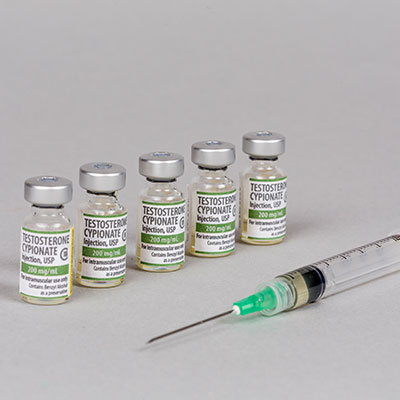
Testosterone injections are prescribed as different “esters.” Each “ester” is simply a different chemical form of testosterone. They differ only in their molecular structure. The most commonly prescribed esters used for the treatment of low testosterone are testosterone enanthate and testosterone cypionate.
Our doctors believe that testosterone injections are the safest and most effective form of testosterone replacement. Unlike other common testosterone delivery methods like patches and gels, testosterone injections are delivered directly into the bloodstream. In addition, there have been fewer documented side effects with testosterone injections. Also, there are far more dosages of testosterone available in injections than in any other form. Which means, should you experience any side effects, or we have to change your dosage of testosterone for any reason over the course of your treatment, it is very easy to do so.
What do the Medical Studies Say About Increasing Your Testosterone Level?
A 2018 study looking into the link between poor diet, obesity, and testosterone level published in Trusted sourceNCBIGo to sourcethe medical journal Nutrients concluded, “this study’s results suggest that individuals who prefer Western-style food (bread and pastries, dairy products, and desserts) eat out, and eat fewer homemade foods, noodles, and dark green vegetables are more likely to have an unhealthy body composition (e.g., increased visceral fat and decreased skeletal muscle mass) and low total serum testosterone levels, and are likely to develop hypogonadism (low testosterone).”
There have been many clinical studies that provide evidence for the link between exercise and boosting testosterone.
- A Trusted sourceSpringer LinkGo to source1983 study looking at the testosterone levels in men and women after lifting weights found that men experience significant increases in testosterone while women experience almost little or no increase.
- A Trusted sourceSerum testosterone, growth hormone, and insulin-like growth factor-1 levels, mental reaction time, and maximal aerobic exercise in sedentary and long-term physically trained elderly malesPubMedGo to source2004 study of older men found that regular physical activity increased testosterone and also had a positive effect on cognitive function.
- A Trusted sourceVariations in urine excretion of steroid hormones after an acute session and after a 4-week programme of strength trainingPubMedGo to source2007 study found that men who did resistance training 3 days a week for 4 weeks increased their testosterone levels immediately after a workout that subsisted over time.
- A Trusted sourceAcute and delayed effects of high intensity interval resistance training organization on cortisol and testosterone productionEurope PMCGo to source2014 study found that HIIT increased testosterone levels in men.
There have been several studies that indicate a link between low levels of vitamin D and low testosterone in men. For example, A recent study featuring in the Trusted sourceVitamin D and sex steroid production in men with normal or impaired Leydig cell functionPubMedGo to sourceJournal of Steroid Biochemistry and Molecular Biology found a distinct association between vitamin D levels and testosterone. The study determined that men with a vitamin D deficiency had lower testosterone levels than those without a deficiency.
There have been countless studies that have proven the benefits of testosterone replacement for increasing testosterone levels in men diagnosed with low testosterone. The most significant of these is the recently concluded Testosterone Trials, or “T-Trails.”
In 2018 the results of a long-term study into the benefits of testosterone therapy known as the Trusted sourceLessons From the Testosterone TrialsOxford AcademicGo to source“Testosterone Trials” were published. The conclusions that were drawn by the Testosterone Trials included:
- Testosterone treatment for older men with low testosterone improved all aspects of sexual function.
- Testosterone treatment for older men with low testosterone improved stamina, as measured by walking distance.
- Testosterone treatment for older men with low testosterone improved mood and depressive symptoms.
- Testosterone treatment for older men with low testosterone markedly increased the volumetric bone mineral density and estimated bone strength.
These are just a small sample of the many clinical trials that have found proven methods to increase testosterone and indicate the safety, benefits, and effectiveness of testosterone replacement therapy.
Now that you know a lot more about the various ways to increase testosterone, why not contact us today and learn more about the many life-changing benefits of testosterone therapy.
FAQ
1. What Is Testosterone Replacement Therapy?
Testosterone therapy is designed to make you feel younger, stronger, and improve your confidence, so you can continue to do all the things you enjoy most in life. As men grow older, declining levels of testosterone are inevitable. However, testosterone therapy can give you back what time and nature take away!
2. How Do I Start Testosterone Therapy?
You can only receive testosterone treatment with a doctor's prescription. If you qualify, you can get a prescription for testosterone treatment by following these five easy steps:
- Step 1 – Fill out an online medical history form – This first step is the only step in the process of getting a prescription for testosterone injections that can be done online. You cannot legally BUY testosterone injections online or without a prescription.
- Step 2 - See a doctor –If your online medical history form indicates that you are a good candidate for testosterone treatment, the next step is to see your doctor. He or she will discuss your medical history and conduct a complete physical exam.
- Step 3 – Laboratory hormone testing – Once you have completed your physical exam, if your doctor suspects you may have low testosterone, you will be referred to a laboratory to have the hormone levels in your blood tested.
- Step 4 – You will obtain a prescription for testosterone treatment - If the results of your laboratory tests indicate that your testosterone levels are below normal, your doctor will prescribe a brand and dosage of testosterone injections to suit your needs and lifestyle.
- Step 5 – Your testosterone treatments will be delivered to you – Your prescription for testosterone therapy will be forwarded to one of the pharmacies we work with that specialize in filling prescriptions for testosterone injections. The pharmacy, in turn, will deliver your testosterone treatment supplies right to your home!
3. How Do Testosterone Injections Work?
Testosterone injections are designed to replace the testosterone that is no longer being produced by your body in adequate amounts. Testosterone shots can return your testosterone levels to normal very quickly. Raising the level of testosterone in your blood is actually accomplished in a single shot. Just raising the level is not how testosterone injection therapy works.
4. How Soon Can I Expect Results From Testosterone Injections?
Testosterone injection therapy, when prescribed correctly, usually works for most men. Following all of your doctor's instructions will help you achieve the best results from your testosterone injections over the shortest amount of time. You will begin to notice improvements within the first three weeks of testosterone therapy. The first benefit that most men taking testosterone injections experience is an improvement in sexual function.
After that, as you continue over the course of the next six months of taking testosterone injection therapy, you can expect to achieve the full benefits of testosterone therapy.
5. What Is the Cost of Testosterone Treatment?
Since programs vary for low testosterone from clinic-to-clinic and from patient-to-patient, costs vary. A typical male patient should expect to pay anywhere from $500 –$1500 per month for testosterone therapy.

